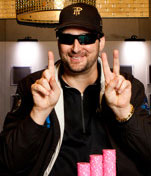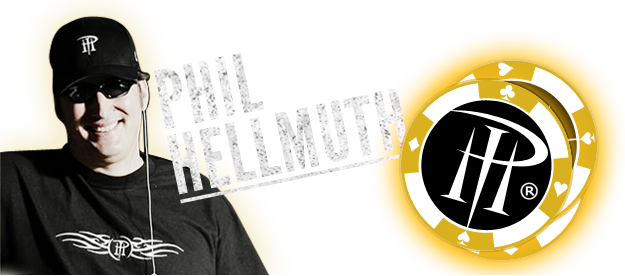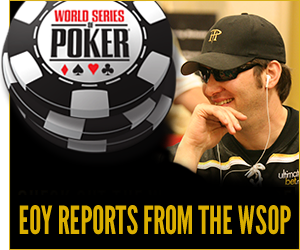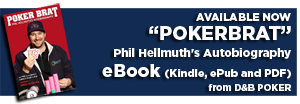-
‘Seinfeld’ vs. ‘Malcolm in the Middle’
While shooting “Celebrity Poker Showdown” in New Orleans (shameless plug: Wednesday at 9 p.m. on Bravo for the next five weeks) I found out that some of these celebrities can really play no-limit Hold ’em at a high level. In Week 1, Jason Alexander (George Costanza on “Seinfeld”) and Bryan Cranston (the dad on “Malcolm in the Middle”) really brought some game to their five-player heat, while playing along with Susie Essman (“Curb Your Enthusiasm”), Jamie Bamber (“Battlestar Galactica”), and Kevin Sorbo (“Hercules,” “Andromeda”).
Alexander and Cranston dominated. On air, I picked Cranston to win (Dave Foley, my co-host, picked Alexander), though I acknowledged that Alexander was a terrific player as well. I had given Alexander lessons, along with my books and DVDs, on the TV show “Extra” a few years back; and I picked him to finish high as well.
Hercules went out first, followed by Bamber, who was pretty unlucky early on when he had his pocket kings beat by Essman’s A-Q, especially when the first four cards were A-6-4-A, making it hard for him to imagine that Essman had one of the last two aces in her hand. Bamber took a really ugly beat later, when he was all-in with A-6 against Essman’s K-Q, and the flop came down A-6-4 (same flop and same opponent!), and then a jack came, which meant that Essman could win with a 10. Of course, Bamber was still a 10-to-1 favorite to win the pot, but lo and behold, the last card was the miracle 10. Bamber, who was wearing Alexander’s sunglasses, jerked so violently after the 10 came up that the sunglasses went flying off his head (a calmer reaction than I would have had)!
Another interesting hand came up when, on the button, with the blinds at $200-$400, Cranston raised it up to $1,200 to go with K-5 off suit, and Alexander called with 7-4 off suit. In the booth, I announced that I didn’t like Alexander’s call. I mean, why call with 7-4? It’s an easy fold for Alexander, unless he suspected that Cranston was weak, in which case he should have gone ahead, muscled up and reraised it $2,000 more to try to win the pot right then and there. Why call a raise to take a flop with 7-4? I don’t mind Cranston’s raise here, since he had been raising quite a number of pots and winning them uncontested, which added to his chip lead.
After a flop of 9-4-2, Alexander bet out $500 with his pair of fours, which was OK with me, except that if you’re going to bet that little, understand that your opponent may think you’re weak. Cranston, without hesitation, went ahead and raised it up $1,500 more. I love the fact that he raised it up on a stone-cold bluff, and especially that he made his raise so quickly (he made it look as if he were strong). This put Alexander in a tough spot, and I don’t think his fold was a bad one. But I would have liked his fold even more had he taken time to study Cranston for a while, and given himself a chance to make a good read. I believe he folded too quickly. A call here would have been OK, but as it turns out, a raise would have been the perfect play. Ideally, Alexander studies Cranston a minute, reads weakness and reraises it three or four thousand or more.
Essman was the next to exit, with the blinds at $1,000-$2,000, when Cranston raised it up to $4,000 to go with Ad-10d, and Essman made it $6,000 to go with the Kh-8h. I would have preferred to see them both make bigger raises before the flop; Cranston should have made it $6,000 to go, and Essman, if she raises it up at all, should have moved all-in for $15,000. A flop of A-K-5 sealed Essman’s fate, and left Cranston heads up with Alexander for the title.
A few hands later, Alexander, with $10,000 in chips and the blinds at $3,000-$5,000, moved all-in on the button with 9d-7d, and Cranston, with $40,000 in chips, called with Q-7. With the blinds this high, both players were forced to play their hands before the flop. Cranston was a 2-to-1 favorite to win the match, but the flop came down 9c-6d-2d, which was a great flop for Alexander because he had hit his nine and flopped a flush draw. After two low cards came off, Alexander won that hand. And after winning the next two hands as well, he won his heat and was the first of five players to advance to the final (I couldn’t believe that Foley had finally picked a winner, and in our first show together!). By the way, first place in “Showdown” this time around is $500,000, out of a total prize pool of $1 million, and all of that will be going to New Orleans-based charities.On our second show, Wednesday night (June 7) at 9 p.m. on Bravo, watch Jorge Garcia (“Lost”), Greg Behrendt (“He’s Just Not That into You”), Michael Ian Black (director of the upcoming movie “The Pleasure of Your Company”), Kim Coles (“Living Single”), and Andrea Martin (in soon to be released movies “Young Triffie’s Been Made Away With” and “Black Christmas’) battle it out to reach the CPS final.
When you have Q-7 versus 9d-7d, your Q-7 is favored by this much:
A) 5-to-1
B) 4-to-1
C) 3-to-1
D) 2-to-1Answer: D
Related Posts
- The Holiday Game
- Poker for Police Officers
- No ‘Blow-Up’ for Matusow
- Furst Versus Worst
- Cunningham Going for the Gold
- Winning from the Hole
- After-Hours Poker
- Key Hand at European Poker Championships
- Make the Most of It!
- One Tough Poker Game
Recent Posts
- WSOPE 2nd place finish
- Update from this years WSOP 2019
- Happy Holidays! Updated stock at Poker Brat, new book!
- Phil Hellmuth wins historic 15th World Championship!
- Final golden ticket winner coming soon
- Poker Brat – The Phil Hellmuth Jr. Autobiography
- Phil Hellmuth’s “Pokerbrat” – Coming soon to audio book!
- Poker Night in America – Sugar House Casino
- Sugar House w Matt Glantz
- Lost and found

 ™
™








